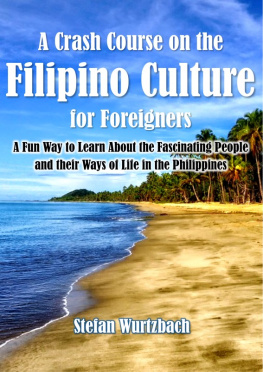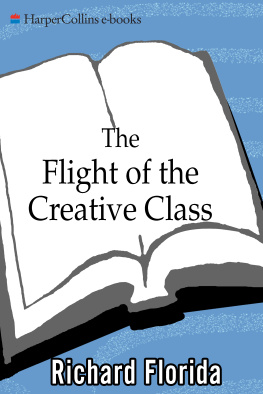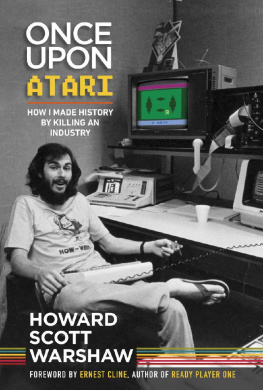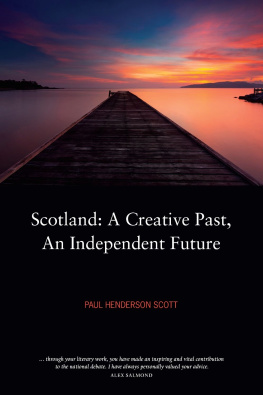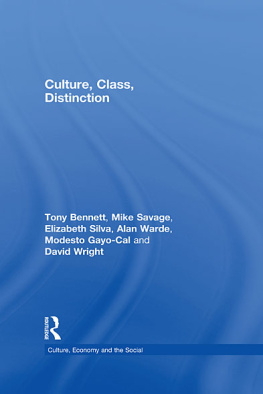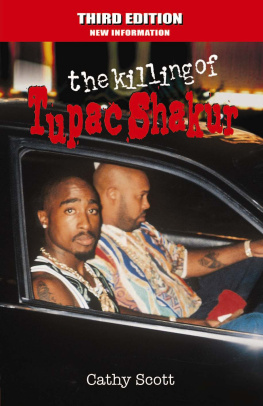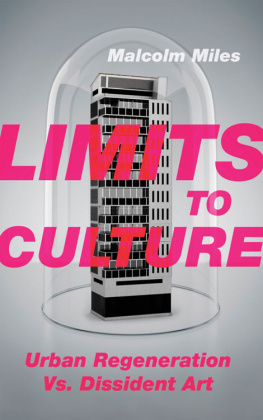Scott Timberg - Culture Crash: The Killing of the Creative Class
Here you can read online Scott Timberg - Culture Crash: The Killing of the Creative Class full text of the book (entire story) in english for free. Download pdf and epub, get meaning, cover and reviews about this ebook. year: 2015, publisher: Yale University Press, genre: Art. Description of the work, (preface) as well as reviews are available. Best literature library LitArk.com created for fans of good reading and offers a wide selection of genres:
Romance novel
Science fiction
Adventure
Detective
Science
History
Home and family
Prose
Art
Politics
Computer
Non-fiction
Religion
Business
Children
Humor
Choose a favorite category and find really read worthwhile books. Enjoy immersion in the world of imagination, feel the emotions of the characters or learn something new for yourself, make an fascinating discovery.

- Book:Culture Crash: The Killing of the Creative Class
- Author:
- Publisher:Yale University Press
- Genre:
- Year:2015
- Rating:4 / 5
- Favourites:Add to favourites
- Your mark:
- 80
- 1
- 2
- 3
- 4
- 5
Culture Crash: The Killing of the Creative Class: summary, description and annotation
We offer to read an annotation, description, summary or preface (depends on what the author of the book "Culture Crash: The Killing of the Creative Class" wrote himself). If you haven't found the necessary information about the book — write in the comments, we will try to find it.
Culture Crash: The Killing of the Creative Class — read online for free the complete book (whole text) full work
Below is the text of the book, divided by pages. System saving the place of the last page read, allows you to conveniently read the book "Culture Crash: The Killing of the Creative Class" online for free, without having to search again every time where you left off. Put a bookmark, and you can go to the page where you finished reading at any time.
Font size:
Interval:
Bookmark:
CULTURE CRASH
THE KILLING OF THE CREATIVE CLASS
SCOTT TIMBERG

Copyright 2015 by Scott Timberg. All rights reserved. This book may
not be reproduced, in whole or in part, including illustrations, in any
form (beyond that copying permitted by Sections 107 and 108 of the U.S.
Copyright Law and except by reviewers for the public press), without
written permission from the publishers.
Yale University Press books may be purchased in quantity for educational,
business, or promotional use. For information, please e-mail
(U.K. office).
Printed in the United States of America.
Library of Congress Cataloging-in-Publication Data
Timberg, Scott.
Culture crash : the killing of the creative class / Scott Timberg.
pages cm
Includes bibliographical references and index.
ISBN 978-0-300-19588-0 (hardback)
1. Creative abilityUnited StatesHistory21st century. 2. Social
classesUnited StatesHistory21st century. 3. Social changeUnited
StatesHistory21st century. 4. Popular cultureUnited States
History21st century. I. Title.
BF408.T55 2015
305.550973dc23 2014015252
A catalogue record for this book is available from the British Library.
This paper meets the requirements of ANSI/NISO z39.48-1992 (Permanence of Paper).
10 9 8 7 6 5 4 3 2 1
To Sara, for helping us survive
this wave of creative destruction;
and to Ian, who may live to see
how the story ends
The present is only faced, in any generation, by the artist. The absolute indispensability of the artist is that he alone, in the encounter with the present, can give the pattern recognition. He alone has the sensory awareness to tell us what our world is made of. He is more important than the scientist.
Marshall McLuhan, 1968
He wont hear the thing come in. It travels faster than the speed of sound. The first news you get of it is the blast. Then, if youre still around, you hear the sound of it coming in.
Thomas Pynchon, Gravitys Rainbow
DOWN WE GO TOGETHER
AFTER A WHILE, I GOT accustomed to walking in circles. Most days I told myself things would be okay, but then Id get news so unpleasant and disorientingor have to pass something grim over to someone I cared aboutthat all I could do was slowly orbit, phone in hand, whatever room I was in, either trying to understand what was going on or working to make the person on the other end feel better. Its hard for me to do this while standing still.
This time, I was in Portland, Oregon, in the basement of the home of an old college friend, just waking up and getting ready for a day trip into the countryside. Then my cell phone rang, the face of my wife back home in Los Angeles showing up on its small screen. She didnt waste time. The bank, she said, is suing us. Shed woken up to a courier posting a note on our front door. Im sorry, was all he said before taking off. Pulling the photocopied forms off our doorin triplicateshe saw that one of the largest banks in the world had initiated legal action to take our little house from us. While offering various reassurances, trying to keep my wife from despair, I think I paced fast enough to wear a groove in my friends stone floors.
The banks action was not entirely unexpected. There had been bad news, dire warnings, and false alarmsas well as form letters sent to our address offering, in both English and Spanish, to helpfor some time. In 2008, a risk-taking real-estate mogul had bought the newspaper I wrote for. In the months immediately before and after he drove the company into bankruptcy, the paper laid off hundreds of usmore than a third of its staff. We should have seen it coming. Various owners and regimes had come and gone, but we mostly ignored them, telling ourselves we were laboring for the readersomeone wed never met, but whose idealized interests and curiosities we hoped to engage. The reader was of little help, as a combination of market forces, new technologies, and clueless corporate overlords tore our business apart.
As my family limped through the next few yearsI kept writing, but for less and less moneyI found myself telling my five-year-old son over dinner one night that wed be leaving the house hed been raised in but we didnt know when, we didnt know where we would go, and we couldnt really explain to him why. But then, he said, looking up from a Scandinavian high chair purchased in better times, well come back, right? Within a year or so, it was done, and I couldnt help but notice that the locksmith who arrived to lock me out of my first house drove a fancier and substantially newer car than my seventeen-year-old Honda.
Of course, I had plenty of company. The collapse of several of the best-known banks and trading firms on Wall Street in the same season as my layoff meant that not only journalists were suffering. Id spent my two decades in the business writing about culture of various kindsrock bands, graphic artists, piano tuners, classical composers, underground cartoonistsso I knew a lot of people whod been hammered. Architects I knew watched their practices implode. Some of my favorite bookstores sold off their stock in a hurry as they closed their doors. A talented and energetic frienda photographer whod become a photo editor as a means to stabilitylost his job, twice. A cousin in Oregon whod started a small graphic design firm closed the company and moved into his brothers basement. A sweet, gifted couple, both of whom worked in art galleries, left for a midwestern family farm. For those who stayed, marriages and friendships often became collateral damage. An animator neighbor whose cheerful little daughter played with my son lost his job and, eventually, his health and his marriage. A close frienda landscape painter whod seen his income cut in half with the market crashcame over one night with a mandolin and we started an acoustic duo dedicated to slow, sad country songs, some of them from the Great Depression. (The band was intended more as fun than therapy, but the gallows humor may have been lost on our wives, who wondered how long wed be able to keep our hold on the middle class.) Before long, my friend and his family sold their house and left the country. I worried that we too might have to go into exile.
My path into the creative classas an observing reporterwas pretty typical. Growing up a middle-class kid, I had no illusion that Id ever become wealthy, but I had a sense that I could get really good at something if I worked as hard as I could and surrounded myself with what someone once calledin a phrase that now sounds antiquethe best that had been thought and said. Mine was a pragmatic, find-a-summer-job, get-Triple-A-and-change-your-oil-regularly kind of family. But there was also a respect for culture. Reading James Joyces Dubliners showed me a new way to see: there was a world behind the world that you could discern if you squinted just right. People around me would often tell me they were not religious, they were spiritual, but I was neither: art and literature did all that religions were supposed to, without Crusades or cults or scented candles.
Whether it was endlessly spinning the Beatles Revolver in elementary schooluntil I knew every detail of George Martins productionor obsessively rereading Kurt Vonnegut in high school or sinking into the work of Thomas Pynchon and Billie Holiday in college, or Elizabeth Bishops and Luis Buuels in the apprentice years that followed, I wanted to bathe in the work of great artists, even if I had no expectations of becoming a jazz singer or a surrealist filmmaker. I saw myself in the third generation of people who had worked in culture without either striking it rich or going broke. My grandfather had played piano on the vaudeville circuit and wrote songs for black-and-white cartoons, my grandmother was a dancer in Ziegfelds shows, and my dadtheir sonwrote about politics for a living. My mother and many of the women on her side of the family taught school; some were English teachers who passed on their love of literature. My aunt and uncle were RISD-trained graphic artists.
Next pageFont size:
Interval:
Bookmark:
Similar books «Culture Crash: The Killing of the Creative Class»
Look at similar books to Culture Crash: The Killing of the Creative Class. We have selected literature similar in name and meaning in the hope of providing readers with more options to find new, interesting, not yet read works.
Discussion, reviews of the book Culture Crash: The Killing of the Creative Class and just readers' own opinions. Leave your comments, write what you think about the work, its meaning or the main characters. Specify what exactly you liked and what you didn't like, and why you think so.

